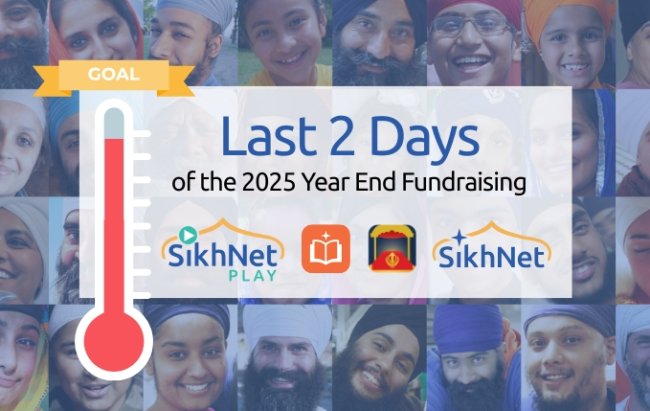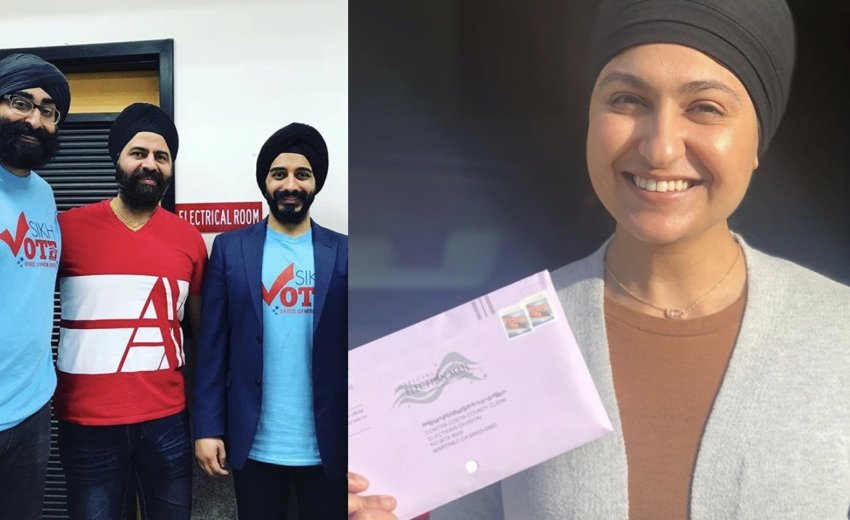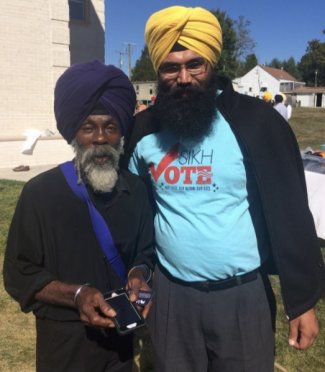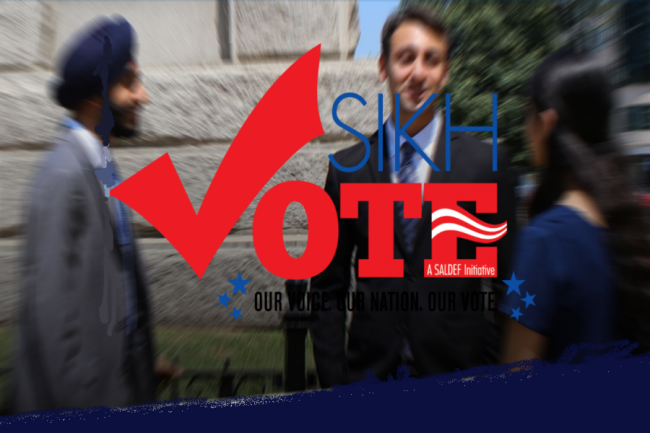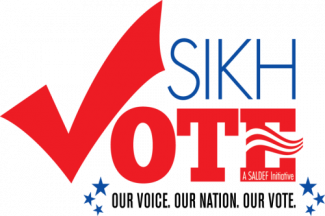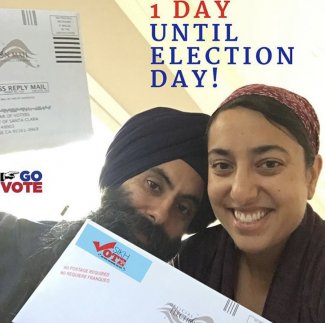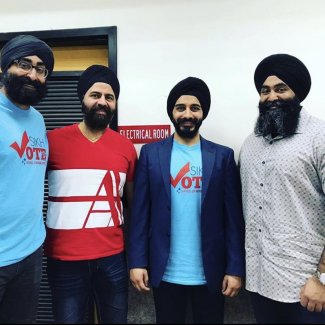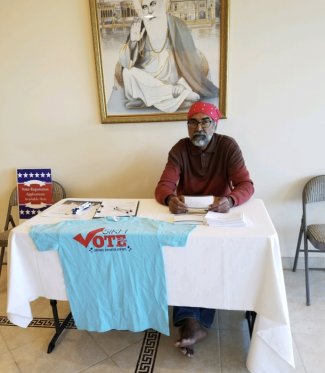As Sikh Americans in 2020, there are a multitude of pressing issues that we must urge our elected leaders to address: the reinforcement of hate crime legislation, the omission of Sikhism in educational curriculums, and the strengthening of new workplace anti-discrimination laws. Increasing voter turnout in the Sikh community and applying electoral pressure on our leaders is one of the best ways that we can advance progress on these issues in government.
Increased Sikh voter turnout allows us to exert our community’s collective influence over our elected leaders. Comprising about 700,000 of the nearly 330 million Americans, it may seem like the Sikh American community is too small to have significant power in the public sphere. However, this ignores a key characteristic about Sikh Americans: we are heavily localized around a few key geographical areas. Think about certain electoral districts within California, New York, and New Jersey, where Sikh Americans constitute a significant amount of the population. If there is a targeted increase of Sikh civic engagement within these districts, Sikh Americans have the potential to become a powerful voting bloc that is difficult to ignore by our elected leaders. Take for example San Jose, CA, where Sikh Americans were able to elect the very first Sikh member of California’s State Legislature, Ash Kalra. No one knows Sikh issues better than Sikhs themselves, and increasing turnout is one of the best ways that we can elect leaders that understand our community.
Voting is more important than ever. As a minority group in America, the upcoming election represents a societal inflection point for our future. The past few years have marked a significant increase in hate, with the FBI reporting that in 2018 (the most recent year that statistics are available for) the US hit a 16-year high for hate crimes. According to these same statistics, Sikhs were the third-most targeted religious group in hate-related incidents, with the number of anti-Sikh acts increasing by over 200 percent from 2017 to 2018. Additionally, Sikhs continue to face barriers when it comes to employment discrimination, bullying in school, and unconstitutional treatment in immigrant detention centers. All of these issues are important, and voting allows us to choose the people that will go on to address them in government. With this, it is important to highlight the value of voting in local elections. Consider those running for school board, mayoral positions, and city council; in many cases, these people shape policy that has a high impact on daily life, and they are much easier to access given our community’s heavily localized presence.
Voting directly aligns with the values of Sikhi. Voting is free of any distinction based on class, race, sexual preference, or any other artificial divisions; the vote of a multi millionaire business tycoon is given the same value as one of his or her working working-class employees. This parallels one of Sikhism’s foundational principles: equality. Think about langar, in which a free meal is served to all visitors of the Gurudwara, no matter their caste, creed, economic status, or ethnicity. Or the deliberate introduction of “Singh” and “Kaur” as the shared surnames of Sikhi, in which our leaders decided that the inequality propagated by the caste system had gone on for far too long. Voting is a driving force on the ideal of egalitarianism in the US, and Sikhs must contribute to this force by heading to the polls this November.
Voting is understandably a difficult task; for many, it means that one must take time off from work, learn about the complexities of voter registration, and spend their most valuable resource: time. However, it is of paramount importance for us as Sikh Americans to consider the deeper value that our vote holds. Although the benefits may not be immediately clear, voting is immensely important to the Sikh community, and it remains one of the best ways that we can leverage our community’s power to influence the government.
Avijit Singh is a recently graduated high school senior that elected to take a gap year before starting college next fall. Avijit currently works as a fellow at SALDEF and a field organizer for Representative Susan Wild’s campaign. Avijit intends to attend Duke University as an economics and math double major after his gap year.
Twitter: @avi_singh04
